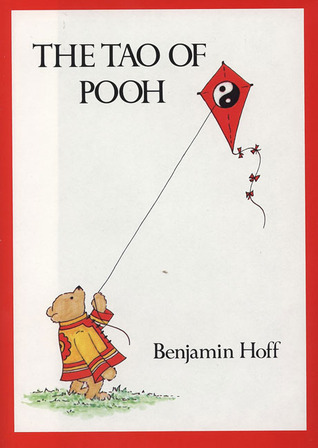Chapter 11: Backword
byChapter 11: Backword begins with Hoff asking Pooh what he thinks about The Tao of Pooh. Pooh, as usual, doesn’t quite grasp what Hoff is referring to. He isn’t thinking about philosophy, concepts, or teachings. He’s simply being present—more focused on the moment than on summarizing a book. Hoff reminds him of P’u, the Uncarved Block, and Wu Wei, the effortless way of being. Pooh listens politely, and in his own simple, wise way, responds with a song. It’s about doing what’s in front of you, not trying too hard, and staying true to who you are. Pooh says that’s what he thinks the book is about. Hoff agrees but takes it further—Pooh doesn’t just think it; he lives it.
Pooh’s response reflects a profound truth at the heart of Taoism: real understanding doesn’t require labels or explanations—it’s experienced. Pooh doesn’t try to define Tao or explain it in clever terms. Instead, he embodies it by being calm, kind, and present. Hoff points out that living in accordance with Tao is not about intellectual analysis but about moving with the flow of life. Pooh doesn’t read ancient scrolls or meditate for hours; he simply listens to his inner self. His decisions come from instinct, sincerity, and quiet awareness. The wisdom of the Tao lies not in knowing everything but in living authentically without force or pretense.
Throughout the book, Hoff has drawn attention to how Pooh represents the natural way. Unlike Owl, who seeks knowledge, or Rabbit, who tries to control everything, Pooh simply observes and responds. When something needs doing, he does it—gently, without stress or calculation. This natural approach is exactly what Taoist masters have taught for centuries. In Taoist terms, Pooh is not cluttered with concepts or ambitions. He doesn’t resist what is or strive for what isn’t. His peace comes from accepting life as it comes, just as a tree accepts the seasons without complaint. Hoff recognizes that this unforced, unexamined way is not a flaw—but a gift.
Hoff’s final message is subtle but powerful: the value of Taoism doesn’t lie in its definitions but in its practice. Pooh shows that wisdom doesn’t have to be loud or complex. It can be quiet, soft, and sweet—like honey on toast. Hoff suggests that too often, people search outside themselves for answers, missing what’s been inside them all along. Pooh never searches for meaning; he just lives in it. And in doing so, he reminds readers that perhaps the best philosophy is the one you don’t realize you’re following. That’s the Pooh Way—and also the Tao.
There’s something timeless in Pooh’s gentle responses and soft songs. His simplicity doesn’t come from ignorance but from a quiet understanding that things don’t have to be difficult. Taoist tradition teaches that naming, explaining, and trying to control only pulls people away from what matters. Pooh, by contrast, leans into what is present. He doesn’t try to fix the future or untangle the past. Instead, he enjoys each moment, with his friends, with nature, or just with a jar of honey. Hoff sees in Pooh a kind of spiritual mastery—one that doesn’t need a title or a ceremony. The path of Tao can be walked in silence, with curiosity and warmth.
In modern life, where complexity is often mistaken for importance, Pooh’s attitude offers a refreshing shift in perspective. Most people are so preoccupied with productivity and performance that they forget how to just be. Pooh reminds us that presence, not progress, leads to peace. His actions, guided by simplicity, create harmony in his relationships and in his world. Taoism teaches that the strongest force is often the softest, like water that shapes mountains not by force, but by persistence and presence. Pooh lives this lesson by always showing up, doing his best, and never pushing beyond what feels natural. He doesn’t plan greatness—he lets it unfold.
The closing chapter is less of an ending and more of a soft landing. Hoff doesn’t wrap things up with a grand conclusion but lets Pooh have the final thought. Pooh’s comment—that knowing and thinking are the same when you’re in tune with yourself—is the heart of the Tao. It’s not about trying to arrive at wisdom; it’s about living it without even realizing. That’s what Pooh teaches, not through lectures, but by being who he is. A bear of very little brain—but of very great spirit. And in that quiet, gentle wisdom, lies a path anyone can follow. A path not to somewhere, but to right here.

